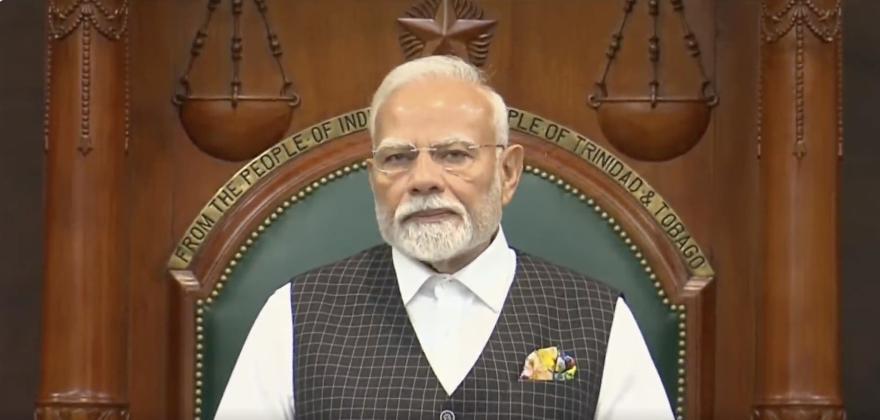
Glad to See So Many Women MPs: PM in Trinidad & Tobago Parliament
Prime Minister Narendra Modi recently addressed the joint assembly of Trinidad and Tobago’s parliament, and his words were filled with pride and admiration for the growing presence of women in the house. In his speech, he expressed his delight at seeing so many women members in the parliament, saying that it was a reflection of the country’s commitment to empowering women and promoting gender equality.
Modi’s comments were particularly significant, given the historical underrepresentation of women in politics and decision-making positions. However, in recent years, there has been a growing trend of women taking up leadership roles and making their mark in various domains. Modi’s acknowledgment of this development and his emphasis on the importance of respecting women is a welcome step forward in promoting gender equality and women’s empowerment.
Respect for Women is Deeply Rooted in Indian Culture
Modi’s statement on the importance of respecting women is also significant because it reflects the cultural values of India. In Indian culture, women are revered and respected for their role as caregivers, homemakers, and nurturers. The concept of Ardhanarishvara, which represents the union of the male and female principles, is deeply rooted in Hinduism and emphasizes the importance of balance and harmony between the two genders.
Modi’s emphasis on the need to strengthen women to build a modern India is also significant, given the country’s economic and social challenges. India is a rapidly urbanizing country, and women are playing a crucial role in shaping its future. From entrepreneurship to education, women are making significant contributions to the country’s development, and Modi’s words are a testament to this reality.
Women Leading India to a New Future
Modi’s statement on the importance of women is not just a statement of fact; it is also a call to action. In recent years, India has seen a surge in women’s participation in various fields, including politics, business, and education. From becoming CEOs of major companies to winning election to parliament, women are breaking glass ceilings and challenging traditional gender stereotypes.
In fact, data from the United Nations shows that India has made significant progress in terms of women’s participation in the labor force. According to the UN, the labor force participation rate for women in India has increased from 26.5% in 1990 to 30.1% in 2020. This is a significant achievement, given the country’s large population and diverse social and economic conditions.
Conclusion
Prime Minister Narendra Modi’s statement on the importance of women in Trinidad and Tobago’s parliament is a welcome development, and it reflects the growing recognition of the critical role that women play in shaping India’s future. As the country continues to evolve and grow, it is essential that we recognize the importance of women’s participation in politics, business, and education and work towards creating a more inclusive and gender-equal society.
Sources:



